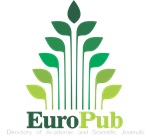Effectiveness of Hydrochloric Acid Activated Bentonite in Local Salt Purification
Abstract
Abstrak:Berbagai teknik pemurnian telah dikembangkan untuk meningkatkan kualitas garam lokal, khususnya kandungan NaCl besar dari 94%. Salah satu zat pengikat yang digunakan dalam pemurnian garam adalah bentonit. Penelitian ini bertujuan untuk mensintesis bentonit termodifikasi menggunakan larutan asam klorida (HCl), dan mengukur kadar logam NaCl, Pb, Ca, dan Mg menggunakan metode SSA. Sintesis bentonit teraktivasi dilakukan menggunakan metode hidrolisis menggunakan 0,1 M HCl (1:10).Bentonit dipisahkan dari filtrat dan dikeringkan pada suhu 110°C selama 2 jam. Bentonit yang telah diaktivasi dengan HCl dikeringkan kembali pada suhu 170°C selama empat jam. Metode analisis seperti XRD, FTIR, dan SEM digunakan untuk mengkarakterisasi bentonit teraktivasi HCl. Hasil analisis menunjukkan bahwa proses aktivasi asam tidak mengubah basal spacing d001 pada difraktogram bentonit. Analisis FTIR menunjukkan terjadi pergeseran vibrasi ulur -OH ke arah bilangan gelombang yang lebih rendah dan penurunan intensitas serapan. Proses aktivasi akan memperkecil ukuran pori dan memperbesar luas permukaan serta porositas pada bentonit. Hasil analisis SSA menunjukkan bahwa kandungan NaCl pada garam mengalami peningkatan setelah proses pemurnian menggunakan bentonit teraktivasi asam yang diikuti dengan penurunan kadar logam Mg. Berdasarkan hasil analisis dapat disimpulkan bahwa bentonit teraktivasi HCl efektif digunakan dalam proses pemurnian garam untuk meningkatkan kualitas garam.
Keywords
Full Text:
PDFReferences
Astuti, R. P., Yulianti, C. H. and Prasetya, R. A. (2016). Pengaruh Lama Waktu Pengadukan Terhadap Pengikatan Impuritis untuk Meningkatkan Kadar NaCl Pada Garam Rakyat. Journal of Pharmacy and Science. 1(1). 9–14. https://doi: 10.53342/pharmasci.v1i1.46.
Ayub, N. and Chaudhry, M. N. (2021). Efficiency of Aluminium Pillared Bentonite Clays of Pakistani Origin (Peshawar and Samwal) on the Adsorption of Chromium Ions in Aqueous Solutions. Polish Journal of Environmental Studies. 30(2). 1039–1050. https://doi: 10.15244/pjoes/124739.
Barakan, S. and Aghazadeh, V. (2021). The Advantages of Clay Mineral Modification Methods for Enhancing Adsorption Efficiency in Wastewater Treatment: a Review. Environmental Science and Pollution Research. 28(3). 2572–2599. https://doi: 10.1007/s11356-020-10985-9.
Bayram, H. et al. (2021). Optimization of Bleaching Power by Sulfuric Acid Activation of Bentonite. Clay Minerals. 56(2). 148–155. https://doi: 10.1180/clm.2021.28.
Belousov, P. et al. (2019). Cesium Sorption and Desorption on Glauconite, Bentonite, Zeolite, and Diatomite. Minerals. 9(10). https://doi: 10.3390/min9100625.
Bijang, C.M. and Sri, D. (2017). Study of Bentonite Activation Using Sulphuric Acid and Its Application As an Adsorbent of Rhodamine B Dye. Pattimura Proceeding Conf. Sci. Technol. 1(1). 083-088. https://doi.org/10.30598/PattimuraSci.2017.ICBS3.083-088
Ibigbami, T. B. et al. (2022). Pristine and Activated Bentonite for Toxic Metal Removal from Wastewater. Water Practice and Technology. 17(3). 784–797. https://doi: 10.2166/wpt.2022.018.
Jumaeri et al. (2021). Recovery of High Purity Sodium Chloride from Seawater Bittern by Precipitation-Evaporation Method. Journal of Physics: Conference Series. 1918(3). https://doi: 10.1088/1742-6596/1918/3/032023.
Lathifah, T., Yuliani, N. and Wardhani, G. A. P. K. (2019). Bentonit Teraktivasi Asam Sulfat Sebagai Adsorben Dalam Pemurnian Pelumas Bekas. Jurnal Sains Natural. 9(1). 1. https://doi: 10.31938/jsn.v9i1.170.
Liu, J. et al. (2018). Highly Efficient Conversion of Glucose into Methyl Levulinate Catalyzed by Tin-Exchanged Bentonite. Renewable Energy. 120. 231–240. https://doi: 10.1016/j.renene.2017.12.104.
Musie, W. and Gonfa, G. (2022). Results in Engineering Adsorption of Sodium from Saline Water with Natural and Acid Activated Ethiopian Bentonite’, Results in Engineering. 14(3). 100440. https://doi: 10.1016/j.rineng.2022.100440.
Nurhikmah Wahab, I. R. (2020). Analisa Pemurnian Garam Dengan Metode Hidro Ekstraksi Batch Dan Kontinue Di Kabupaten Jeneponto. Jurnal Ilmiah Techno Enterpreneur Acta. 5(1). 10–11. Available at: file:///C:/Users/muhai/Downloads/189-61-318-1-10-20200801.pdf.
Pujiastuti, C., Sumada, K. and Ngatilah, Y. (2018). Application of Ion Exchange Method on Removal of The Ca2+, Mg2+, K+ and SO42- Salt Solution. 1. 264–267. https://doi: 10.2991/icst-18.2018.55.
Rahem, M. and Kartika, A. G. D. (2020). Pengaruh Penambahan NaOH terhadap Peningkatan NaCl Garam Konsumsi. Juvenil. 1(4). 61–467. Available at: http://doi.org/10.21107/juvenil.v1i4.8935ABSTRAK.
Rahimzadeh, H. et al. (2018). Potential of Acid-Activated Bentonite and SO3H-Functionalized MWCNTs for Biodiesel Production from Residual Olive Oil under Biorefinery Scheme. Frontiers in Energy Research. 6(12). 1–10. https://doi: 10.3389/fenrg.2018.00137.
Tarmizi, E., Sunandar, K. and Wibowo, A. D. K. (2021). Synthesis of Food Grade Salt From Brine Water of Tirta Sanita Bogor. Jurnal Pangan dan Agroindustri. 9(3). 65–172. https://doi: 10.21776/ub.jpa.2021.009.03.4.
Uddin, M. K. (2017). A Review on the Adsorption of Heavy Metals by Clay Minerals, with Special Focus on the Past Decade. Chemical Engineering Journal. 308. 438–462. https://doi: 10.1016/j.cej.2016.09.029.
Widjaja, T. et al. (2019). Iodization of Local Salt Based on Purification Technique using Saturated Brine Washing Method. IOP Conference Series: Materials Science and Engineering. 543(1). https://doi: 10.1088/1757-899X/543/1/012024.
DOI: http://dx.doi.org/10.22373/ekw.v9i1.15229
Refbacks
- There are currently no refbacks.
Copyright (c) 2023 Muslimah, Puji Wahyuningsih, Yusnawati

This work is licensed under a Creative Commons Attribution-ShareAlike 4.0 International License.
P-ISSN : 2460-8912
E-ISSN : 2460-8920
ELKAWNIE
This work is licensed under a Creative Commons Attribution-ShareAlike 4.0 International License.
Elkawnie: Journal of Islamic Science and Technology in 2022. Published by Faculty of Science and Technology in cooperation with Center for Research and Community Service (LP2M), UIN Ar-Raniry Banda Aceh, Aceh, Indonesia.
View full page view stats report click here

























